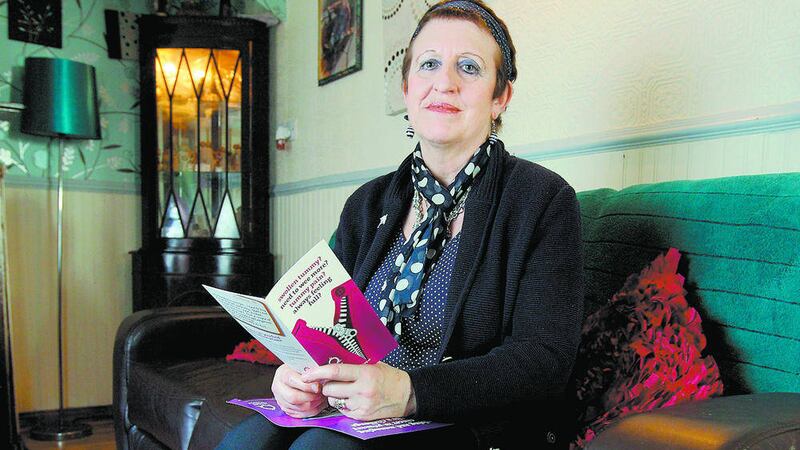WOMEN diagnosed with ovarian cancer in Northern Ireland have the worst survival rates and poorest access to clinical trials in the NHS, a charity has warned.
Around 180 women are diagnosed with the disease each year in the north - of which only three per cent are recruited to trials offering experimental new treatments.
Research by the Target Ovarian Cancer charity shows that less than a third of patients will survive for more than five years following diagnosis.
It is estimated four times more women would live longer if the disease was picked up at an earlier stage.
Often referred to as a 'silent killer', charities are keen to raise awareness of the symptoms associated with ovarian cancer.
Signs to look out for are a constantly swollen abdomen and/or persistent bloating, ongoing excessive tiredness, change in bladder and bowel habits, difficulty eating, pelvic pain and feeling full or nauseous.
A high-profile Belfast campaigner, Una Crudden (60), who lost her battle with the disease last year, took her fight to Stormont which resulted in a major public health programme around warning signs.
Reacting to the latest study on poor patient outcomes, Mrs Crudden's daughter Lisa McGarry said problems accessing new treatments are "unacceptable".
"Northern Ireland is pioneering in developing ovarian cancer trials which is to be commended, but women with ovarian cancer here are not benefitting at all. Women aren't getting access to the new drugs which defeats the purpose of the research," she said.
"Continuing my mum's campaign is important - the disease took my mother and we promised her we would not let her campaign die with her."
Target Ovarian Cancer has also warned that women with ovarian cancer are at risk of delayed diagnosis.
Alexandra Holden from the charity said postcodes are dictating outcomes.
"It really is down to who you meet, where you live, whether your clinician believes in clinical trials, whether there is a trial near you, which there might be, but there might not be.
"It is absolutely just down to chance and that's not acceptable when we're talking about people's lives."
As the ovaries are positioned deep in the pelvis, diagnosis can be difficult. Symptoms are usually mild, meaning it may not be detected until at an advanced stage.
Experts say that it is important to note that abdominal and gastrointestinal conditions such as irritable bowel syndrome also have similar symptoms - so patients should consult their GP.







